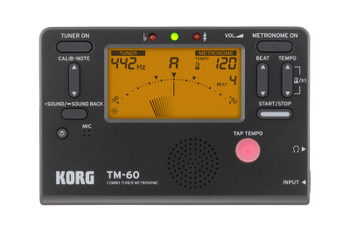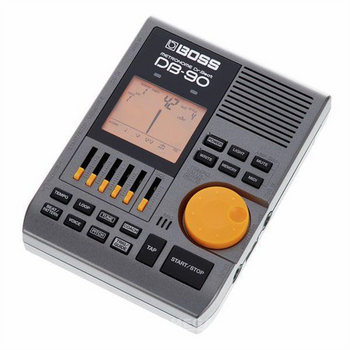- Multifunctional
- Portable
- Long battery life
- Easy-to-read display
- Highly customizable
- Voice counting
- Durable construction
- MIDI connectivity
- Plastic construction
- Small buttons
- Expensive
- Complex interface
Korg TM-60 vs Boss DB-90
When it comes to choosing a reliable and feature-rich tuner and metronome, two popular options are the Korg TM-60 and the Boss DB-90. Both of these products are designed to help musicians improve their playing skills, but they have distinct differences in terms of functionality, accuracy, and user experience.
The Korg TM-60 is a compact and versatile device that combines a high-precision tuner with a metronome. It features a large LCD display that shows the pitch and tempo simultaneously, making it easy to navigate and use. The TM-60 has a wide range of tuning modes, including support for guitar, bass, and orchestra instruments. Its metronome function is also highly customizable, allowing users to set the tempo, time signature, and rhythm pattern to suit their needs. With its compact size and battery-powered operation, the Korg TM-60 is an excellent choice for musicians who need a reliable tuner and metronome on the go.
On the other hand, the Boss DB-90 is a more advanced device that offers a range of features beyond basic tuning and metronome functions. It includes a rhythm trainer with 50 built-in exercises, a phrase looper, and a microphone input for recording and playback. The DB-90 also has a large LCD display and a user-friendly interface that makes it easy to access its various functions. Its tuner is highly accurate, with a detection range of A0 to C8, and its metronome function includes a variety of rhythm patterns and time signatures. Additionally, the DB-90 can be powered via USB or batteries, making it a convenient option for practice sessions and live performances.
One key difference between the two products is their approach to metronomes. The Korg TM-60 has a more traditional metronome function, with a focus on providing a clear and accurate tempo reference. In contrast, the Boss DB-90 takes a more comprehensive approach, incorporating its metronome function into a broader range of practice tools and exercises. This makes the DB-90 a better choice for musicians who want to improve their timing and rhythm skills in a more structured and interactive way.
In terms of accuracy, both products are highly reliable, but the Korg TM-60 has a slight edge when it comes to tuning precision. Its needle-type meter and large LCD display make it easy to achieve precise pitch adjustments, while its metronome function is accurate to +/- 0.1%. The Boss DB-90 is also highly accurate, but its detection range is slightly narrower than the TM-60's.
Ultimately, the choice between the Korg TM-60 and the Boss DB-90 will depend on your specific needs and preferences as a musician. If you're looking for a compact and straightforward tuner and metronome, the TM-60 may be the better option. However, if you want a more advanced device with a range of practice tools and features, the DB-90 is definitely worth considering. Both products are high-quality metronomes that can help you improve your playing skills, but they cater to different types of musicians and practice styles.
In conclusion, the Korg TM-60 and the Boss DB-90 are both excellent choices for musicians who need a reliable tuner and metronome. While they share some similarities, their differences in terms of functionality, accuracy, and user experience make them suited to different types of users. Whether you're a beginner or an experienced musician, it's worth considering your specific needs and preferences when choosing between these two products, both of which are highly regarded in the world of metronomes.


















